#spec zoo
Explore tagged Tumblr posts
Text
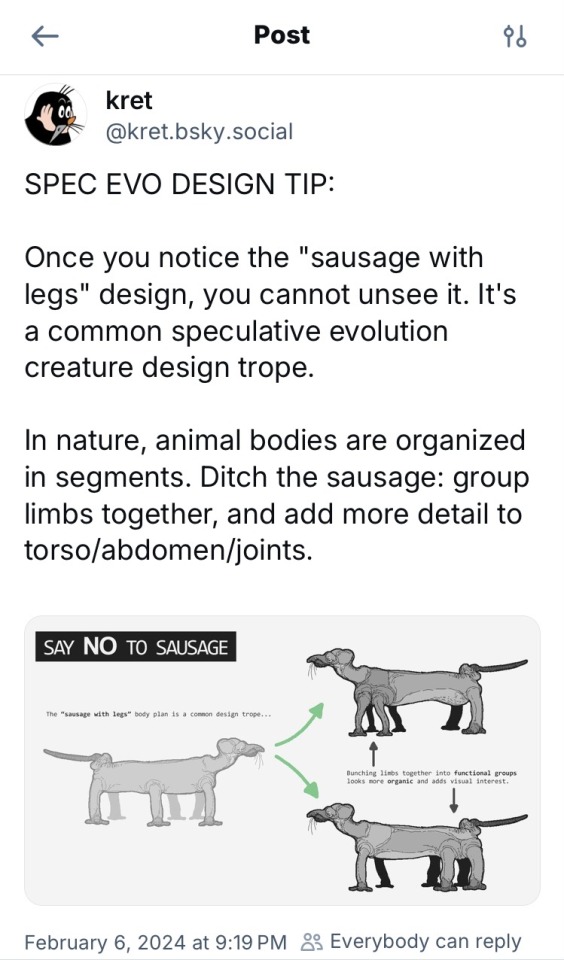
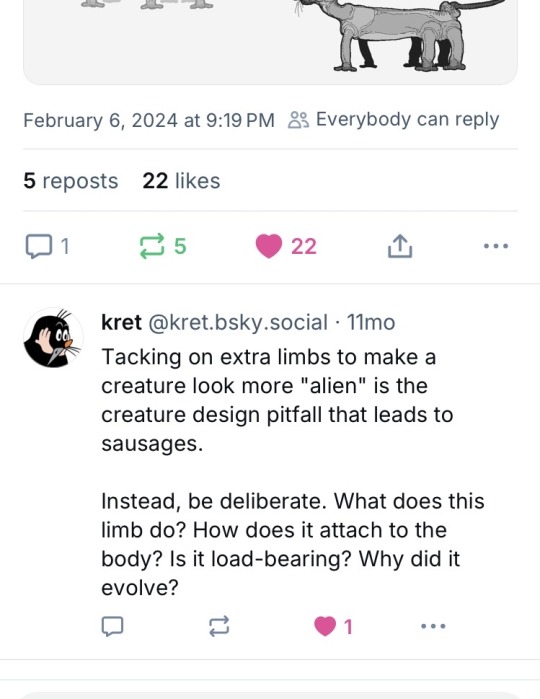
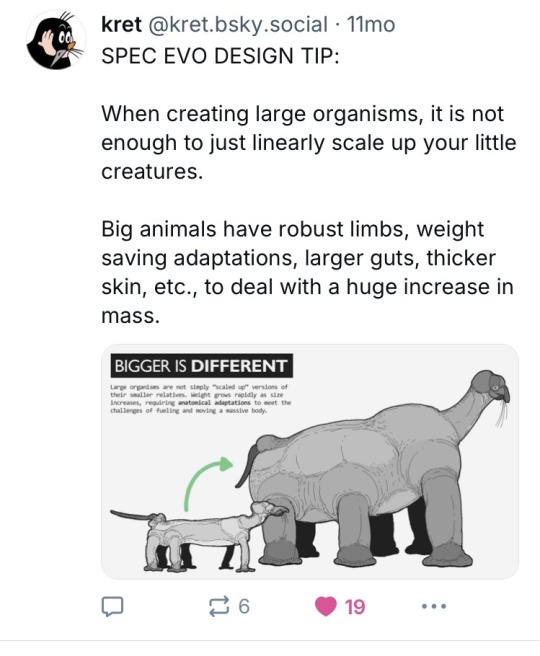
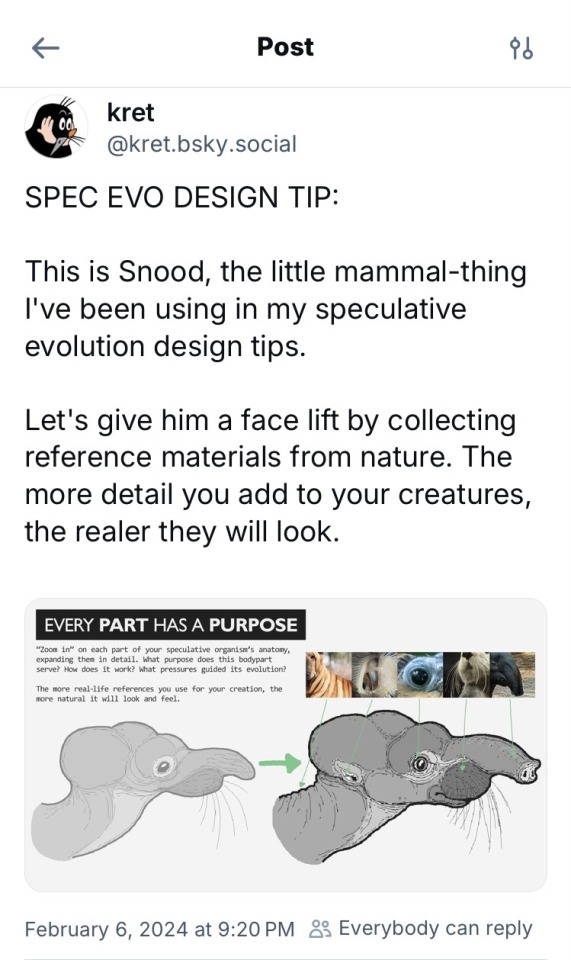
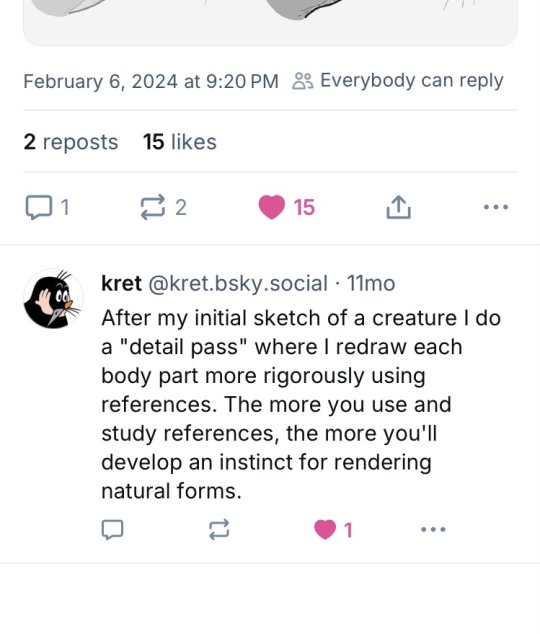
#bluesky#bsky#bsky social#artist on bluesky#speculative biology#speculative evolution#speculative zoology#specevo#spec evo#spec zoo#specbio#spec bio#worldbuilding#speculative worldbuilding#worldbuilding ideas#worldbuilding tips#creature design#creature concept#creature#creature art#art tips#art ideas#art advice#worldbuilding art#worldbuilding concept#artists#art hacks
4K notes
·
View notes
Text
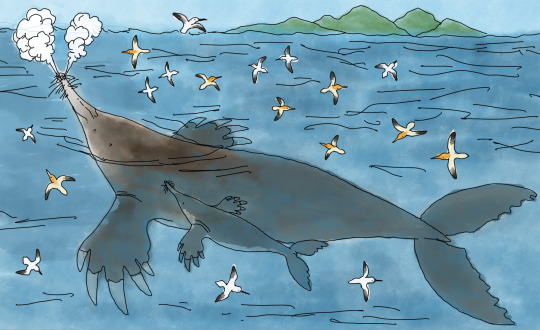
A bonus creature feature made just to end of Spectember 2024! A mother Western Whale-Mole and her calf rise up to the surface of the cold ocean waters surrounding the southern coast of Svarogia to take in a breath of fresh air. Swarming around the giant marine mammals are flocks of two different seabird species that are both endemic to Svarogia: white, ternlike like relatives of hummingbirds and orange-headed, gannet-like relatives of starlings. At 14 to 18 meters long and weighing up to 42 metric tons, the Western Whale-Mole or Aquacondylura orientalis is one of the most common species of the Whale-Moles, a family of giant, aquatic moles that may have evolved from fossorial, pig or cow-sized ancestors millions of years earlier, and it thrives across the seas lying within the planet's Southern Temperate Zone. Western Whale-Moles usually migrate north to the tropics for the lagoons of island chains such as the Strzelecki Archipelago in which they can calve, and the families will soon head further south where shoals of feeder fish or krill have been brought up by the cold, nutrient-righ waters of Potworia's great southern ocean. Like all whale-moles, the Western Whale-Mole usually uses its long, whisker-lined rostrum and clawed flippers, the latter of which are also sometimes used for fighting, to dig up the ocean floor in order to forage for tuna-sized fish and crustaceans, and it is capable of smelling underwater by exhaling large air-bubbles onto any objects or scent-trails and inhaling the bubbles to carry scents back to its nostrills. These same bubbles are also used by individuals gathering together to trap fish or krill in a bubble-net feeding strategy similar to the one used by Earth's humback whales.
#spec bio#spectember#spectember 2024#speculative biology#speculative evolution#speculative ecology#speculative zoology#speculative#creature design#speculative worldbuilding#speculative fiction#spec zoo#spec evo#speculative biology art#speculative evolution art#speculative zoology art#creature concept
964 notes
·
View notes
Text
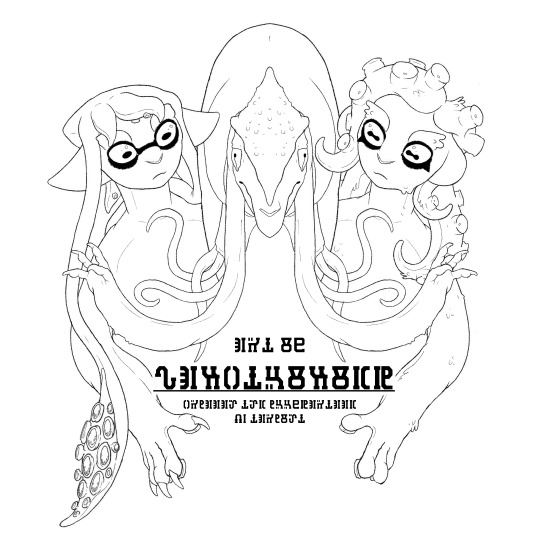
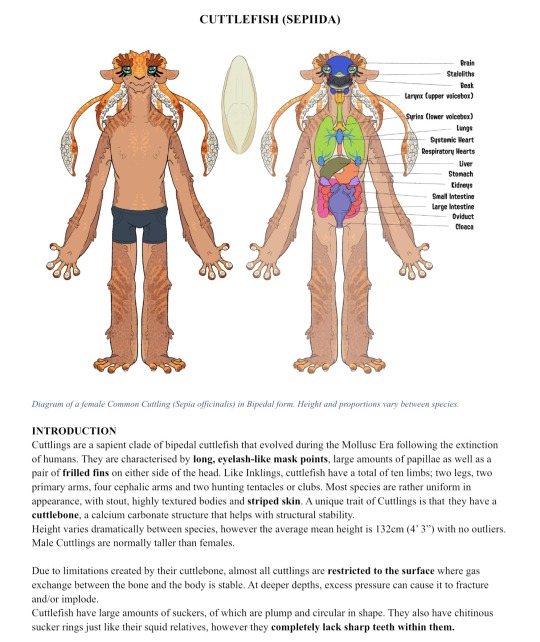
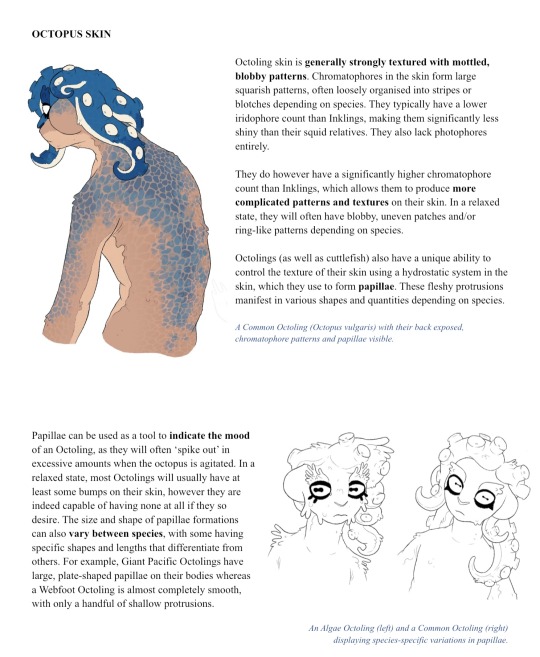
HEY! Do you guys like squid biology? creature headcanons? cool art? well BOY do I have the document for you~~!
It is with great pleasure to show off this absolute chonker of an art/writing project; The Mollusc Era! BEHOLD, MY MAGNUM OPUS!
In this document I go over the intricacies of various cephalopods; Inklings, Octolings, Cuttlings and even the Nautilus! The entire study is illustrated by yours truly, so there's plenty of pretty pictures to gawk at as well as pages upon pages of my concentrated autism ramblings to pour over if that's also your thing. Enjoy!
I’ve also included a Legacy Version of the document: a much older, unfinished version complete with ancient-ass art from mid last year in all of its poorly-rendered glory. A lot of the information in there is also outdated and poorly written, so good luck with that. yuck.
I recommend viewing both of these on desktop as the formatting seems to work best on there. You're more than welcome to use any of the info in there for whatever you like, if you're gonna use my art please credit me though! cheers!
#This has been over a year in the making it's finally DONNEE#this was a project made purely for selfish reasons but hopefully the internet likes it as much as I do lmao#my art#splatoon#xeno tag#splatoon art#my writing#speculative biology#speculative zoology#spec evo#splatoon 3#splatoon fandom#inkling#octoling#squid#octopus#xeno inkling#xeno octoling#splatoon fanart#spec zoo#spec bio
847 notes
·
View notes
Text
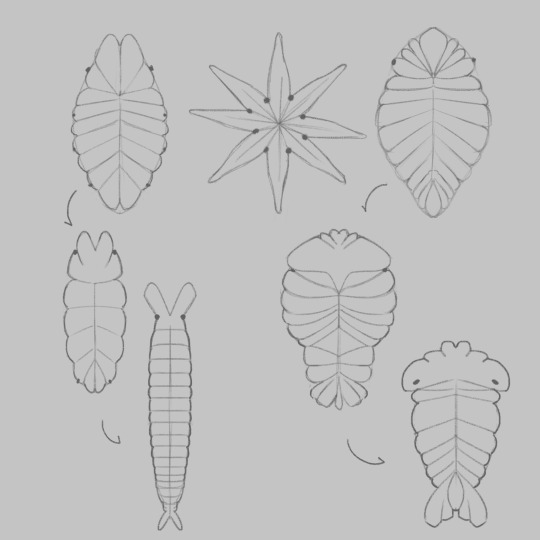
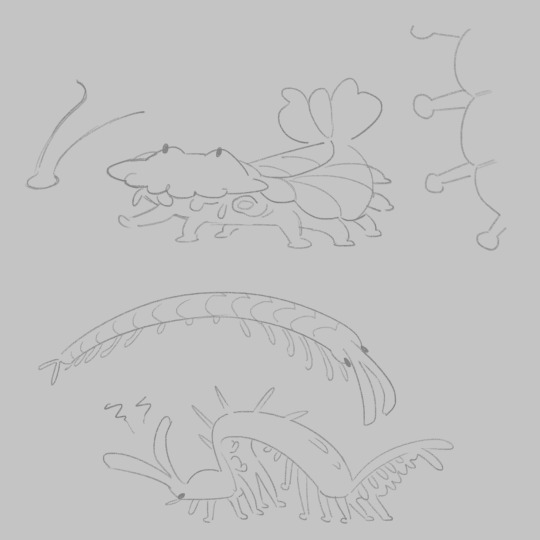
As life proliferates and new niches become available, many parvidema descendants start developing bilaterally symmetry. Two lineages in particular fuse their now front-facing appendages to for heads, moving their eyes and mouths frontward. Their soft limbs carry them across the seafloor at a steady speed, making up for their comparatively poor swimming ability.
Lacking the armor of the lutostella and the speed of eoxenoannelida, they are common prey for both. To make their living, parvidema rely on being the most flexible, gorging on all available detritus and producing many offspring.
#mopsus ii project#spec zoo#speculative zoology#spec bio#speculative biology#spec evo#speculative evolution
35 notes
·
View notes
Text
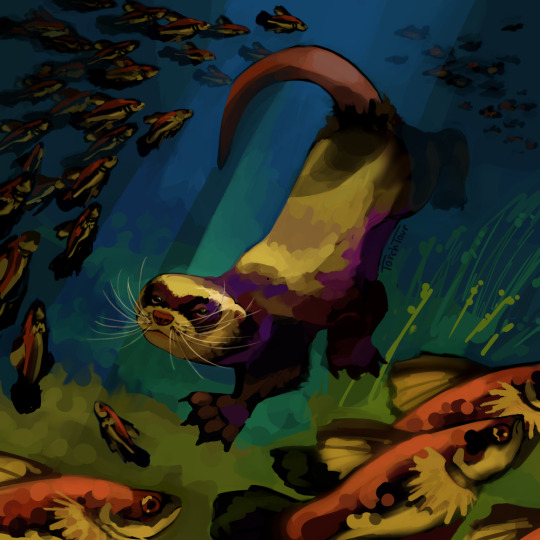
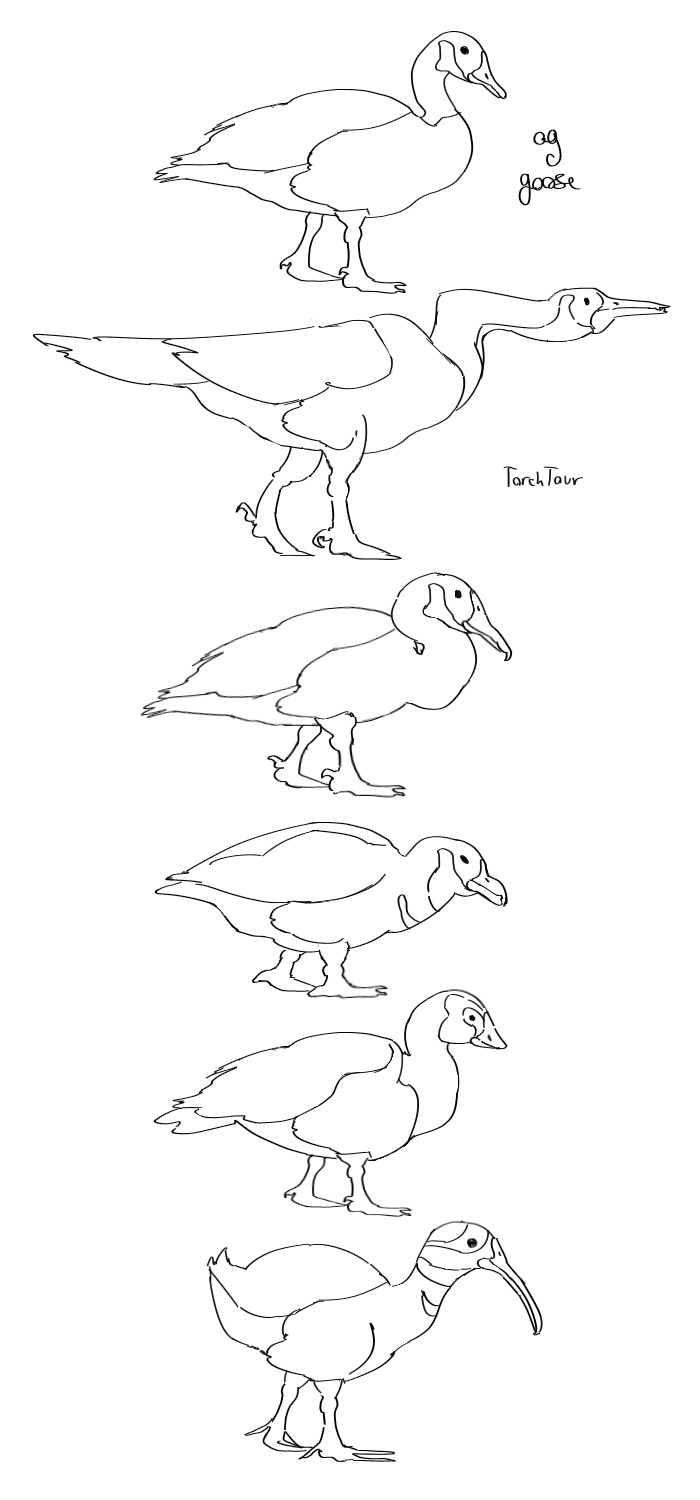
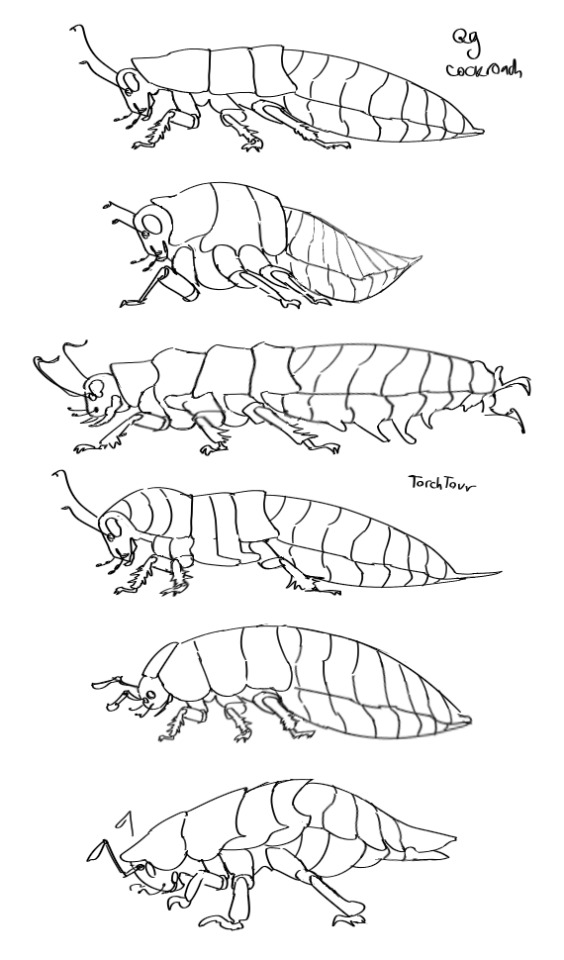
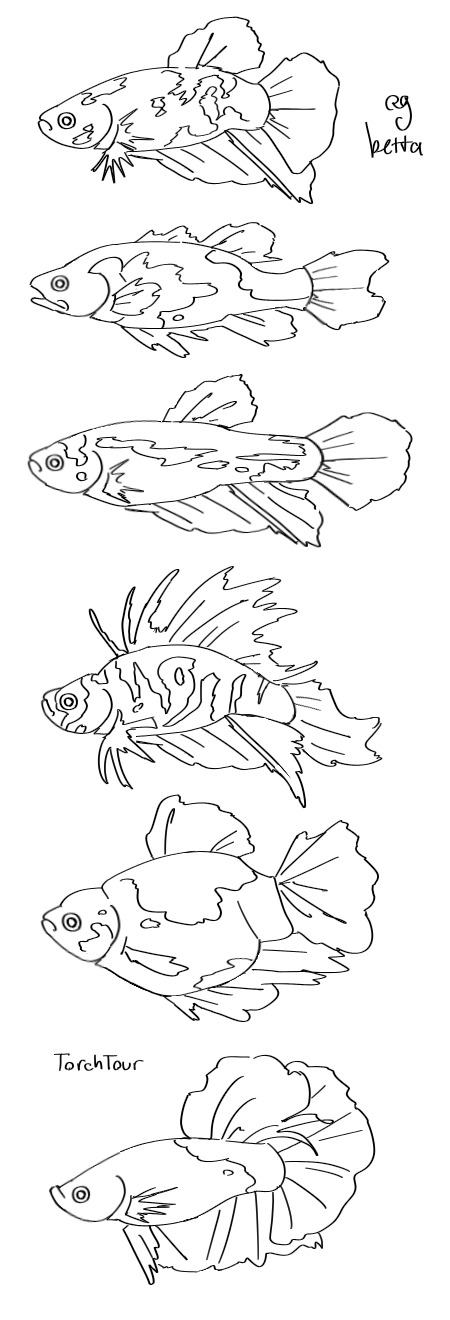
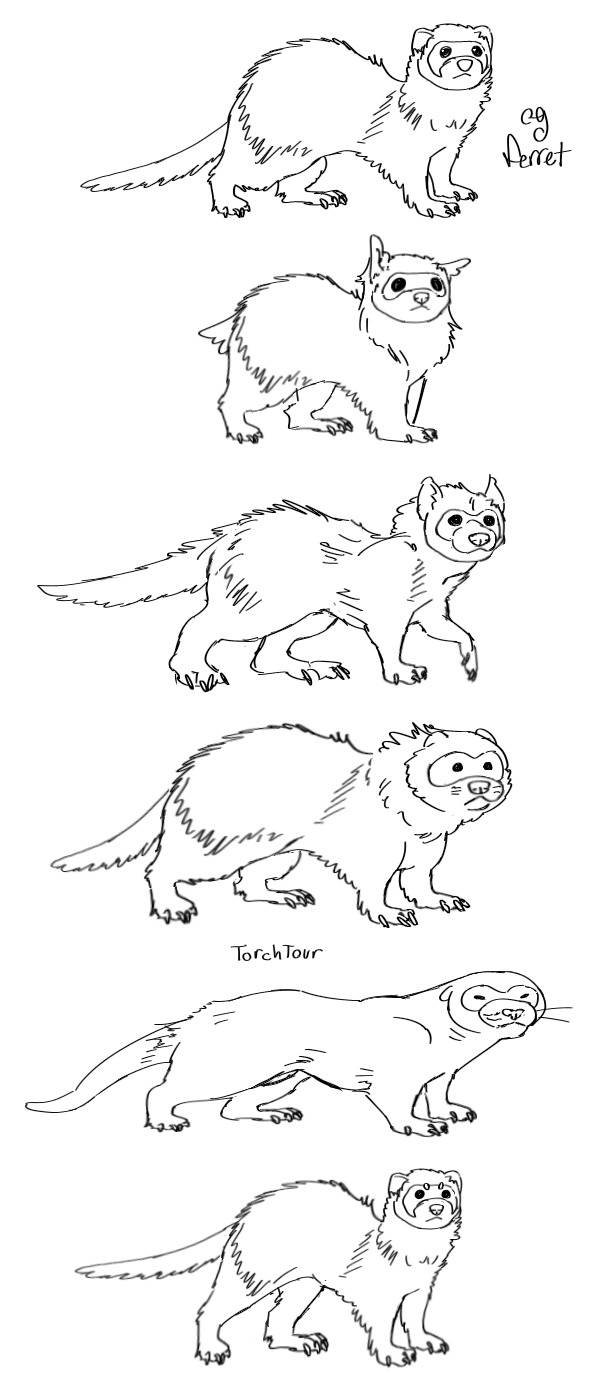
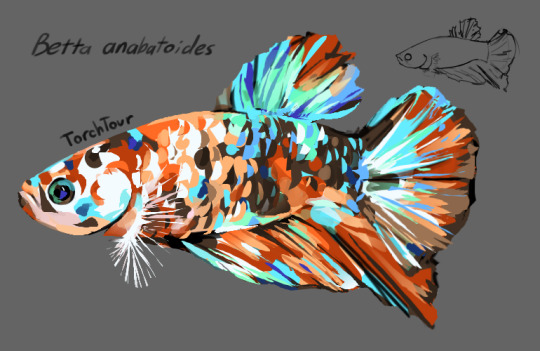
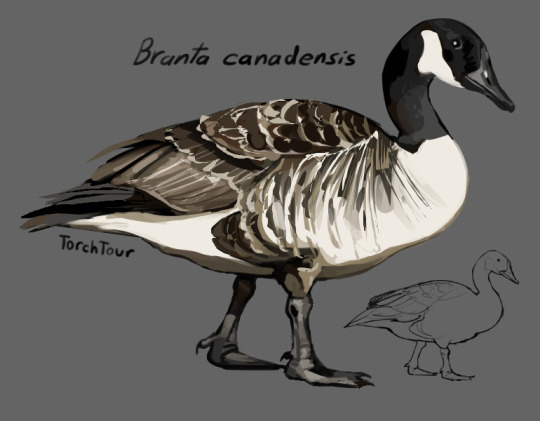
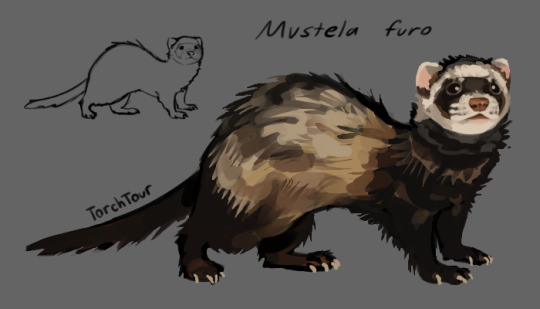
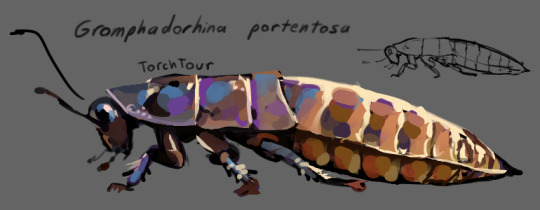
my work so far on @he-who-needs-to-be-silenced's spec bio project: project homeworld!
it's super chill and and anyone can join (me shilling)
#art#myart#speculative biology#speculative evolution#spec bio#spec evo#original species#project homeworld#ferret#cockroaches#betta fish#canadian geese#spec zoo#homeworld
248 notes
·
View notes
Text
Someone tell me to work on my refrence sheet for the species I made so I can brag about how I made a species 🫠
44 notes
·
View notes
Text
Debu run cycle!
They can't jump, so they can't gallop like a horse, which, thank fucking god.
They have the hypothetical spring for it, but their bodies are so big and heavy that they just. they don't. So they instead just walk reaaaally fast and urgently at you. Though, it draws a pretty interesting line between them and the zebrapeople, where both the elves and men are known for jumping - the zebramen in particular being able to leap a truly devious 3 meters straight up in the air, which is their height and more. By law they are banned from the basketball court ❌

Sorry for the lack of DJMM posts lately. I've been kind of burnt out since I've been producing almost exclusively digital art since summer started. I hope this makes up for it 👍👍
#ntls-24722#djmm#dj music man#djmm fnaf#fnaf djmm#dj music man fnaf#fnaf dj music man#speculative biology#speculative evolution#spec bio#spec evo#spec zoo#animation#digital#homo mousike#(almost) daily music man#fnaf fanart#security breach#fnaf sb#fnaf sb fanart#fnaf security breach#fnaf au#fnaf art#djmm au#dj music man au#xenobiology
118 notes
·
View notes
Text
All Tomorrows/Killer Folk AU: Nago - Descendants of the Prey
Commission and design by @fantasy-anatomy-analyst on Ko-fi
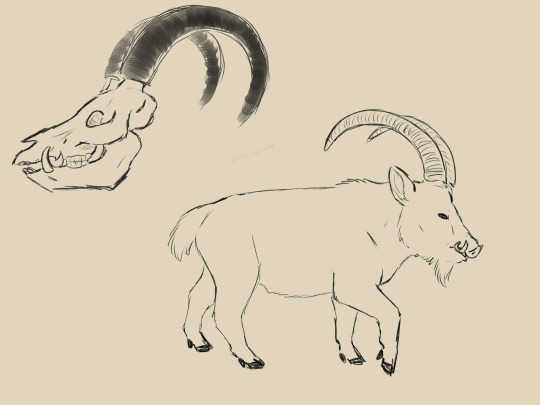
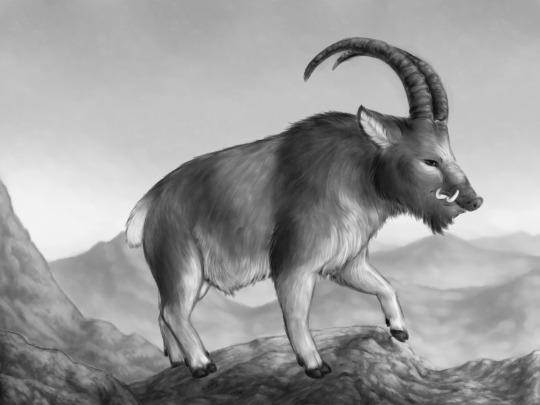
Nago are omnivorous ungulate-like descendants of The Prey.
*Their name is a reference to Nago the Boar god from Princess Mononoke; the word is treated as both singular and plural.
Nago can be found on the largest continents of Areia in both livestock and wild stock herds. They are kept/hunted for their fur, meat, bones, and utility. Nago are known to be both loyal and temperamental, switching between the two especially when threatened.
Compared to their cousin, the unicorn, nago are capable of long distance travel and can hold far heavier loads.
#commission#all tomorrows#killer folk#speculative worldbuilding#world building#worldbuilding#spec bio#spec evo#spec zoo#conworld#speculative biology#speculative anatomy#speculative evolution#speculative fiction#speculative zoology#speculative ecology
25 notes
·
View notes
Text
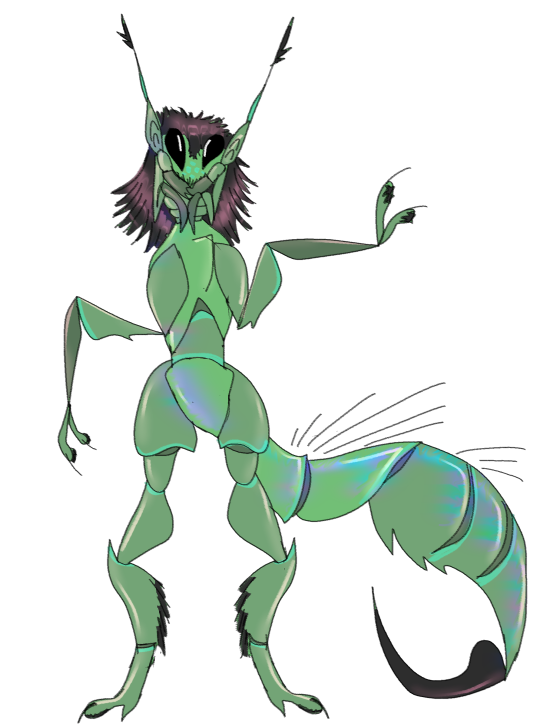
Would you guys believe me if I said this was Sims spec bio. Because this is Sims spec bio.
Preemptively begging you guys not to be weird about them being parasitoids please.
Anyways! Meet Daybreak's newest sophont species, The Sixamites! Native to... Well... Planet Sixam, Of course! They are the product of immense amounts of Autism and my hyperfixation on maxis games extending from Spore to The Sims.
These insectoid sophonts are Parasitoids and rely almost entirely on other species to reproduce. Back on their homeworld they have specialized hosts meticulously GMO'd to care for their young, But recent developments have lead to them expanding their horizons. They are extremely friendly towards other alien species, And due to this they tend to form relationships with other aliens. To a Sixamite, Offering someone to bear their young is the ultimate form of affection.
Sixamites cohabitate very well with other species and are found all across the galaxy, Often on planets not colonized by them, But by other species.
#spec evo#spec bio#speculative biology#speculative zoology#The Sims#I know these guys are from the sims originally but there's vague implications sims is canon to spore#and these guys are so far removed from their origin#so. Yeah. I have Autism I can do whatever I want#I beg of you guys not to be weird about them please#speculative evolution#spec zoo#alien#xenobiology#My Art
77 notes
·
View notes
Text
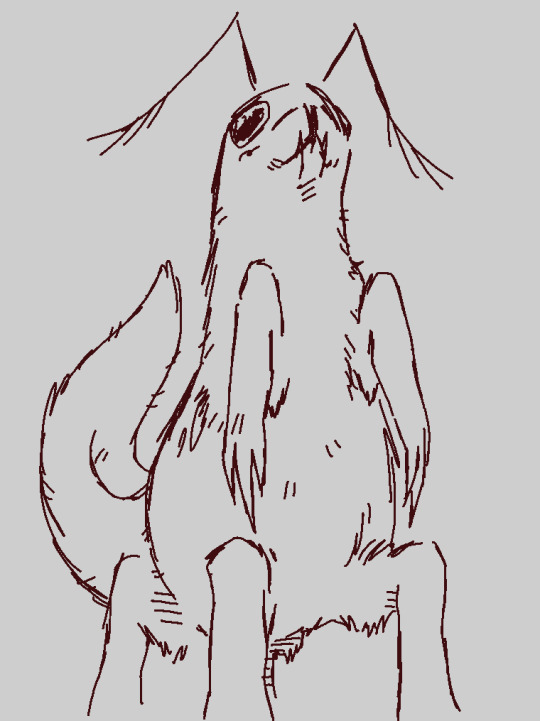
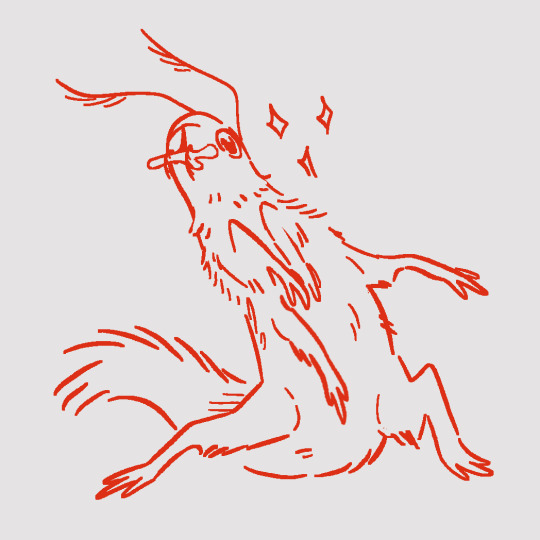
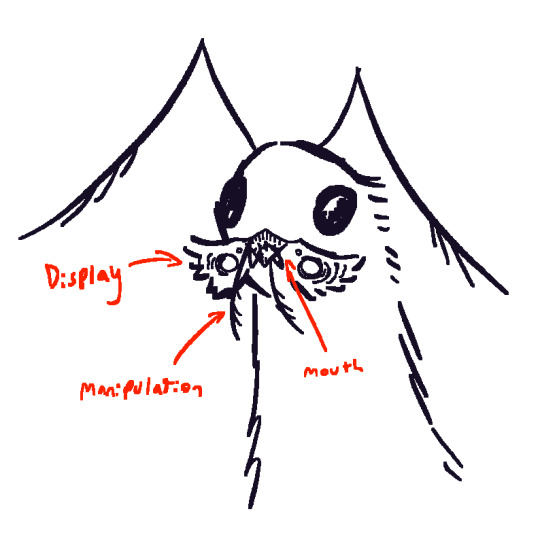

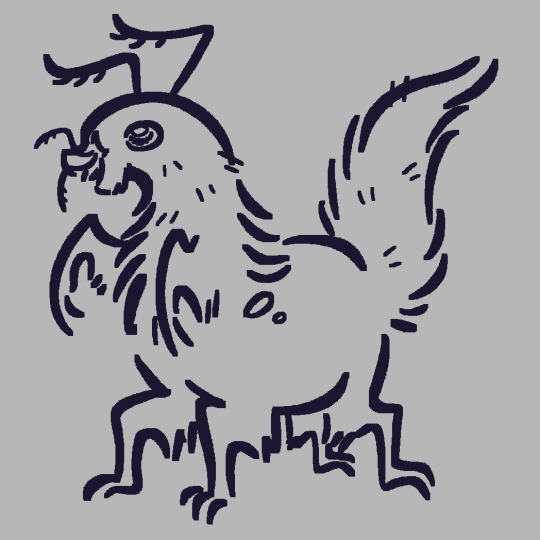

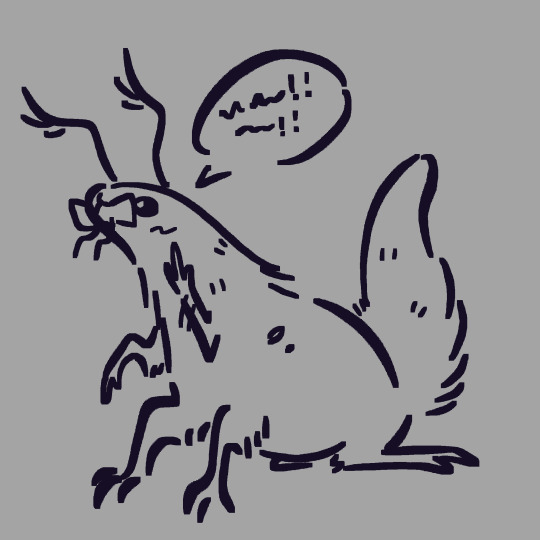
Compilation of burrowing bugs, aka my funny little specbio buggy dudes who look like the tbh autism creature
They’re just so fun to doodle
#sci fi world that is currently unnamed#burrowing bugs#specbio#speculative biology#spec zoo#my oc#my oc art#my art#my doodles
128 notes
·
View notes
Text
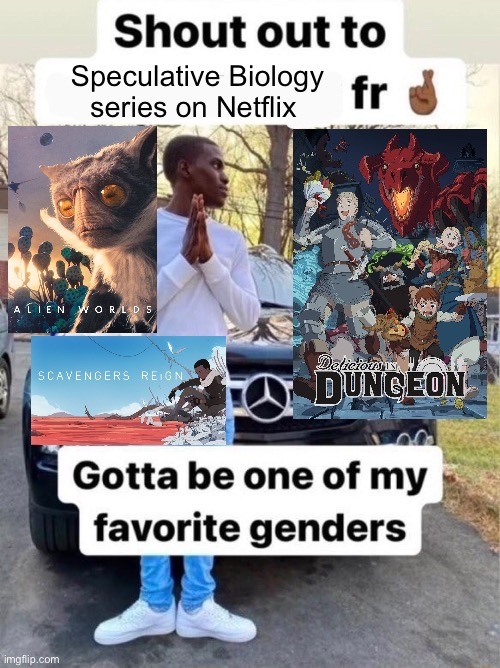
#tumblr memes#memes#meme#meme humor#speculative biology#speculative evolution#speculative zoology#specbio#spec bio#specevo#spec evo#spec zoo#netflix#netflix meme#tv memes#scavengers reign#dungeon meshi#delicious in dungeon#dunmeshi#alien worlds#funny#funny stuff#funny memes#funny shit#funny post#ha ha funny#funny meme haha#funny meme xd#shitpost#shitposting
2K notes
·
View notes
Text
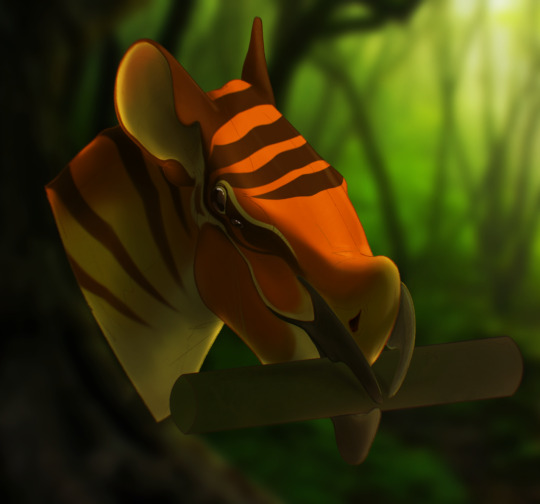
#creature design#spec evo#spec bio#spec zoo#alien#alien design#original alien species#speculative evolution#speculative biology#speculative zoology#bubago#bubago g#xenofiction#he’s an art study so he doesn’t deserve a body#don’t worry he’s fine
255 notes
·
View notes
Text
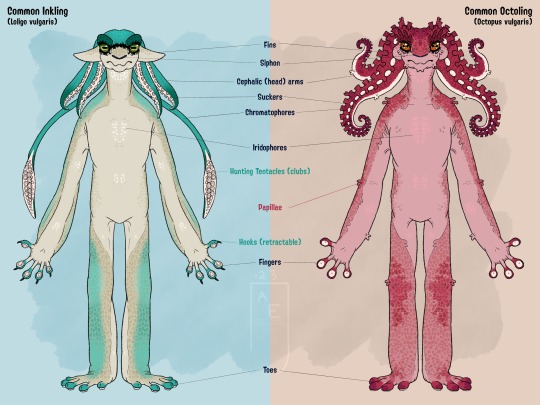
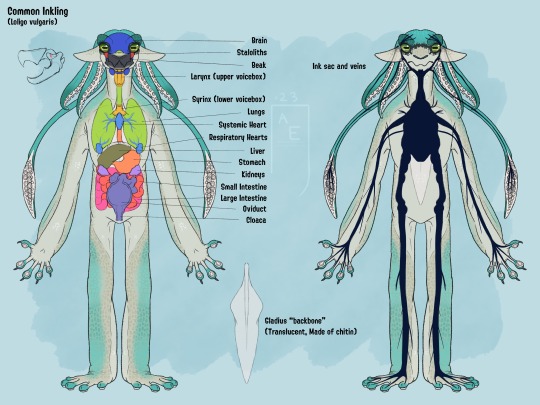
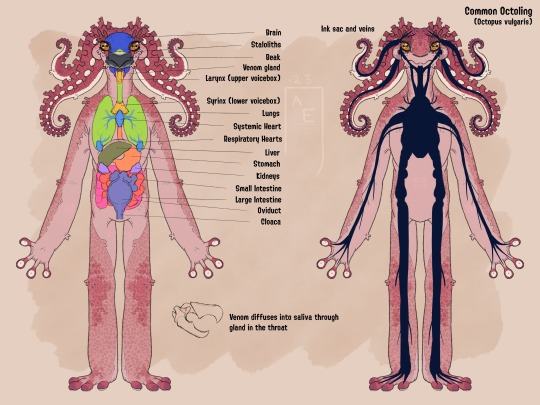
After learning a lot more about squids I was inspired to biology-post once again. Observe my cephalopods, boy.
I wanted to incorporate more traits from the actual in-game design while still adding a healthy dose of creature. I’ll probably still go back and forth between this design and the one i’ve been been using for the past few months, just to get the best of both worlds haha.
Inklings have chitinous teeth in their suckers as well as retractible hooks in the tips of their fingers and toes, the shape and size of which will vary a lot between species. as well. Squids also have a gladius (or “pen”), which is a plastic-like, chitinous structure that basically act as the squid’s backbone and provides support.
Octolings however don’t have this structure, so instead they rely more on the ink veins to support their body weight. Mainly fluid pressure in the legs, which you’ll notice the veins there are denser than an Inkling’s.
Ancient cephalopods made the jump from being muscular hydrostats (no skeleton, all muscle) to true fluid-based hydrostats (using fluid pressure as a “skeleton”) pretty early in their evolution. Their ink sacs grew in size and became their primary form of defence against predators like sharks, which had recently gone terrestrial and were ravaging early molluscan populations at the time.
I’m still not entirely sure how inkfish would change the colour of ink inside their bodies, so for now I’m just going with the headcanon that they do it artificially by ingesting dyes/chemicals before matches, whereas otherwise it would be a deep, inky-black.
#I just really like cephalopods man they’re so cool#my art#xeno tag#xeno inkling#speculative zoology#speculative biology#inkling#splatoon#splatoon 3#Octoling#xeno octoling#Splatoon art#splatoon fanart#Spec evo#spec zoo
269 notes
·
View notes
Text

Spectember 2024 Day 22: Imperial Greatsword
At 16-18 meters long and about three to six tons in weight, the Imperial Greatsword is the largest species of the billfish genus Megaxiphias or Greatswords, Enoch are very distant relatives of the sailfish and swordfish that have specifically evolved to feed upon swift, fast-moving prey up to the size of a beluga Potworia’s second-largest Bony fish species after the Regal Doublefin, and one of the largest, fastest and most fearsome predators ever to swim across the planet’s seas. Megaxiphias imperator inhabits the cold, temperate southern hemisphere half of the vast global ocean that separates one end of Jariloia from the other, and it hunts schooling fish, the slightly larger creatures that are attracted to them such as the wolf-fish, a few species of trevally, as well as swimming coastal parachiropterans. As it does so, the giant fish raises a huge, colorful sail which reduces sideways oscillations of its head, and thus enable the 5-meter-long bill, which can be used to impale prey animals in a similar fashion to Vlad lll’s infamous execution method, to be less detectable to them.
The Imperial Greatsword is capable of accelerating at burst speeds of up to 40 km/h, and it uses its bill to hit its fast moving prey by tapping at them at short-range movement or by slashing at them via long-range horizontal movement. It is also during some of these rapid pursuits that the giant, macropredatory fish will sometimes breach the surface of the water 5 meters high into the air, much like a great white shark or a humpback whale, with the prey animal finally caught in its jaws.
#speculative#speculative biology#speculative biology art#speculative zoology#speculative evolution#speculative ecology#speculative evolution art#speculative fiction#speculative worldbuilding#spec bio#spec evo#spec zoo#spec biology#spec evolution#spec zoology#spectember#spectember 2024
39 notes
·
View notes
Text
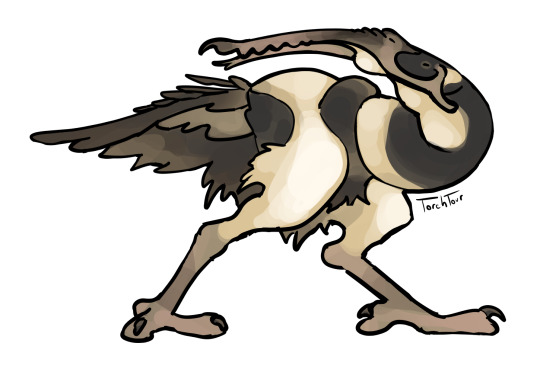

can artfight end faster so i can go back to whatever i was doing before? i can smell the smoke of burnout on the wind, threatening to overtake the glossy meadow in which i lay :'[
#chat save me im going to artdie in the artwar#art#myart#speculative biology#speculative evolution#spec zoo#spec evo#spec bio#original species#project homeworld#homeworld
66 notes
·
View notes
Text
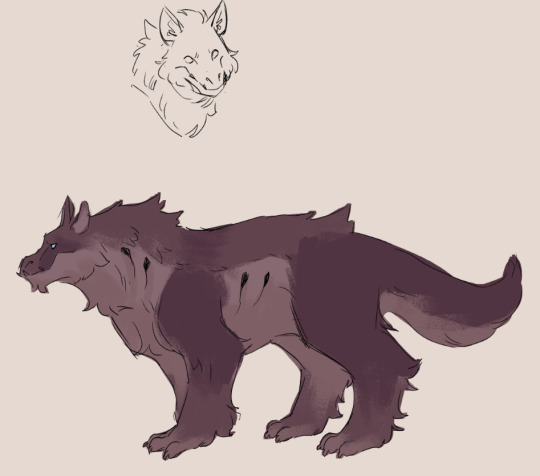
I made the skolzik chonkier because I remembered Allen's rule is a thing and I wanted to see what they would look like if they were more like that.
9 notes
·
View notes